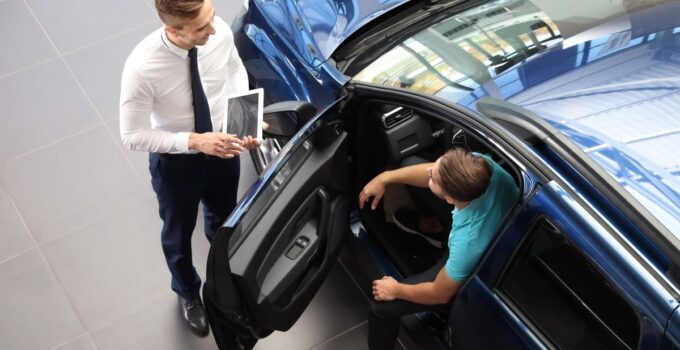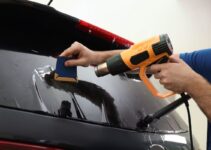Buying a car can be an exciting experience, but negotiating with a dealer can also be tricky. What you say during the process can significantly impact the deal you get. To avoid overpaying or losing your negotiating power, here are 16 things you should never say to a car dealer.
1. “I Love This Car!”

Image Credit: Shutterstock / Dusan Petkovic
Showing too much enthusiasm can weaken your negotiating position. If the dealer knows you’re emotionally attached to the car, they’ll be less inclined to offer you a better deal. Stay calm and objective during negotiations.
2. “What’s the Lowest Price You Can Give Me?”

Image Credit: Shutterstock / Roman Fenton
Asking for the lowest price upfront can backfire. It signals to the dealer that you’re willing to accept their first offer, which is often higher than what they’re willing to negotiate down to. Instead, do your research and make a counteroffer based on market value.
3. “I’m Paying Cash.”

Image Credit: Shutterstock / SaiArLawKa2
While paying cash might seem like a power move, it can limit your ability to negotiate. Dealers often make more money on financing deals through interest rates or lender incentives, so they may be less willing to negotiate if you’re paying cash.
4. “I Need to Buy a Car Today.”

Image Credit: Shutterstock / Inside Creative House
Telling a dealer that you’re in a hurry gives them an upper hand. They know you’re under pressure and may not be as patient during negotiations, which can lead to less favorable terms for you.
5. “My Credit Isn’t That Great.”
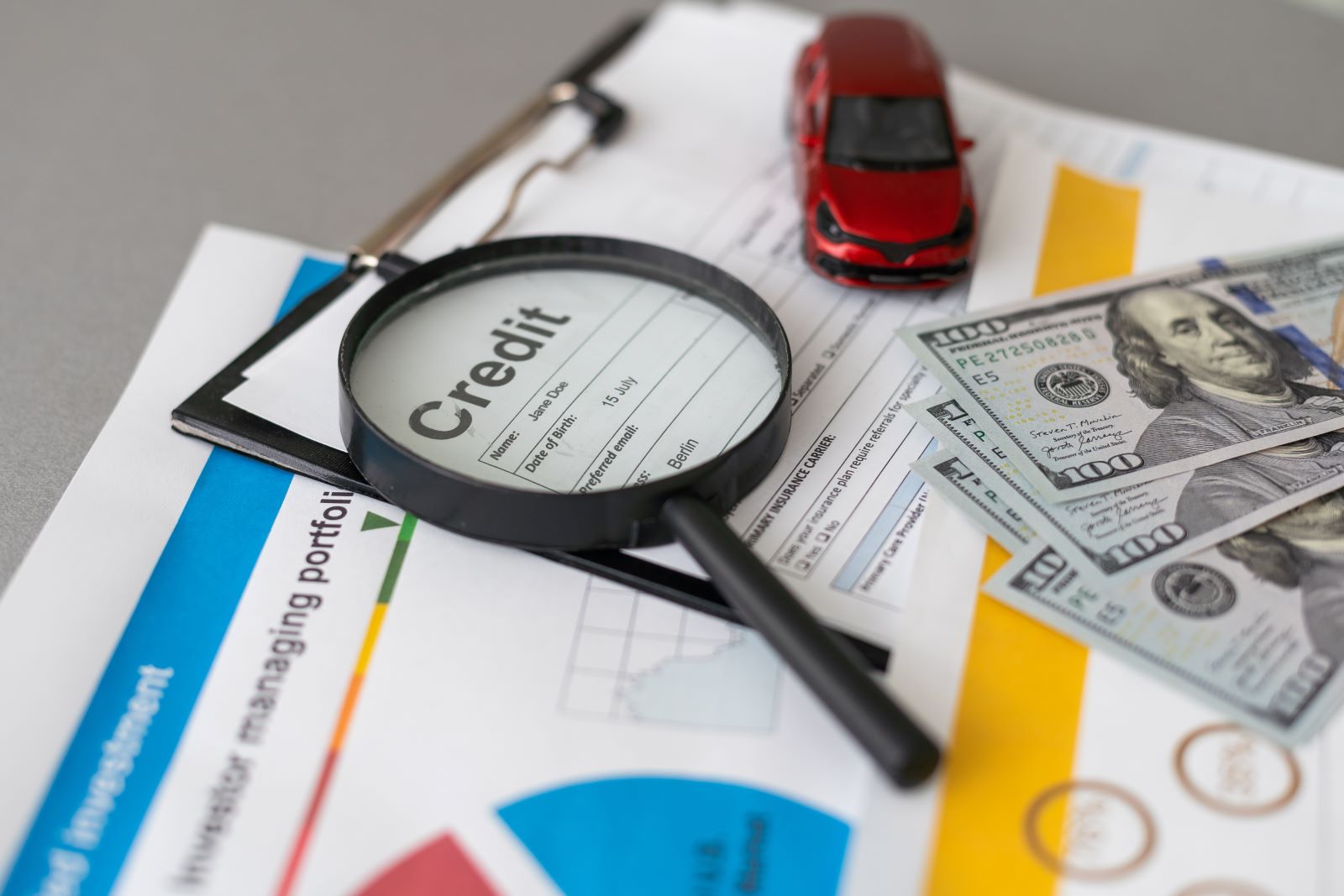
Image Credit: Shutterstock / Andrew Angelov
Mentioning poor credit upfront can lead the dealer to steer you toward less favorable financing options with higher interest rates. It’s better to let them evaluate your credit after you’ve negotiated the price, so you can focus on the car deal first.
6. “I’m Trading In My Car.”

Image Credit: Shutterstock / Hryshchyshen Serhii
Avoid discussing your trade-in until after you’ve agreed on the price of the new car. Mixing the trade-in value with the car’s purchase price can confuse the numbers and reduce your ability to negotiate a fair deal on both ends.
7. “I Can Afford $X Per Month.”

Image Credit: Shutterstock / hedgehog94
Negotiating based on a monthly payment can result in paying more in the long run. Dealers may stretch out the loan term to meet your monthly budget while inflating the total cost with higher interest rates. Focus on the total price of the car instead.
8. “I Haven’t Done Much Research.”

Image Credit: Shutterstock / VesnaArt
Never admit to walking into the dealership unprepared. Doing so tells the dealer that you’re relying on them for information, which could lead to you overpaying. Always do your homework on the car’s value, financing options, and competitive offers.
9. “I’ll Take Whatever You Recommend.”

Image Credit: Shutterstock / Max kegfire
Blindly trusting the dealer’s recommendations can result in unnecessary add-ons or extras that increase the overall cost. Be clear about what you want, and don’t be afraid to decline additional features or services that aren’t essential.
10. “I’m Only Looking at New Cars.”

Image Credit: Shutterstock / ViDI Studio
If you limit yourself to new cars only, you might miss out on good deals for certified pre-owned vehicles. Let the dealer know you’re open to options, as this can give you more leverage in negotiations and help you find a better value.
11. “I Need My Partner’s Approval.”

Image Credit: Shutterstock / DuxX
Mentioning that you need someone else’s approval can stall the negotiation process. It signals to the dealer that they’ll need to sell the car to two people, making them less flexible with their pricing. If possible, have decision-makers present during the negotiation.
12. “I’m Just Window Shopping.”

Image Credit: Shutterstock / Dusan Petkovic
Downplaying your intention to buy might make the dealer less motivated to offer you a deal. While it’s okay to be cautious, be clear about your goals so the dealer knows you’re a serious buyer who expects a fair offer.
13. “I Don’t Care About the Price; I Just Want the Car.”

Image Credit: Shutterstock / Nattakorn_Maneerat
Never say you’re indifferent to the price, even if you’re willing to pay more. This gives the dealer all the power in negotiations. Always show that you’re concerned about getting a good deal, even if money is less of a concern.
14. “I’ll Take It If You Can Get My Payment Down to $X.”

Image Credit: Shutterstock / jd8
This phrase can lead to unfavorable financing terms, as the dealer might lower your monthly payment by extending the loan term or adding hidden fees. Always negotiate the price of the car first, then discuss financing separately.
15. “I Haven’t Shopped Around Yet.”

Image Credit: Shutterstock / Aleksandar Karanov
Admitting that you haven’t compared prices at other dealerships gives the dealer a clear advantage. Always research prices at other locations or online before walking into a dealership, and let the dealer know you’ve done your homework.
16. “I Don’t Need to Test Drive It.”
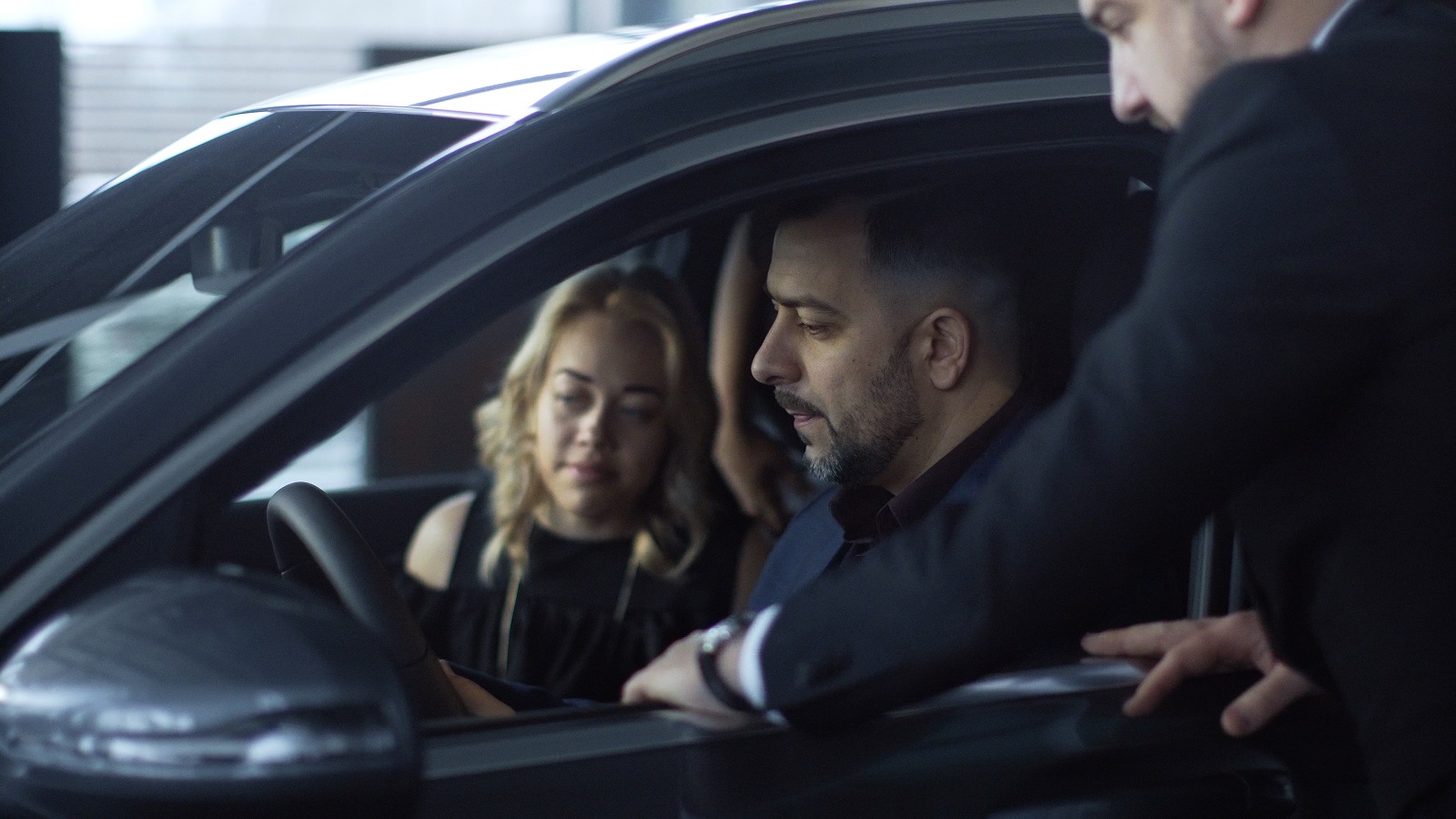
Image Credit: Shutterstock / Frame Stock Footage
Skipping the test drive can be a big mistake, especially with a used car. Even if you’re familiar with the model, test-driving the specific car you’re interested in can help you spot potential issues. It also signals to the dealer that you’re serious about the purchase.
Keep Your Cards Close

Image Credit: Shutterstock / AlessandroBiascioli
When negotiating with a car dealer, the key is to stay calm, informed, and strategic. Avoid giving away too much information, and remember that everything you say can impact the deal you get. With these tips in mind, you’ll be better prepared to walk away with a fair price and a car.
Police Magnet: 7 Cars That Guarantee You’ll Get Pulled Over
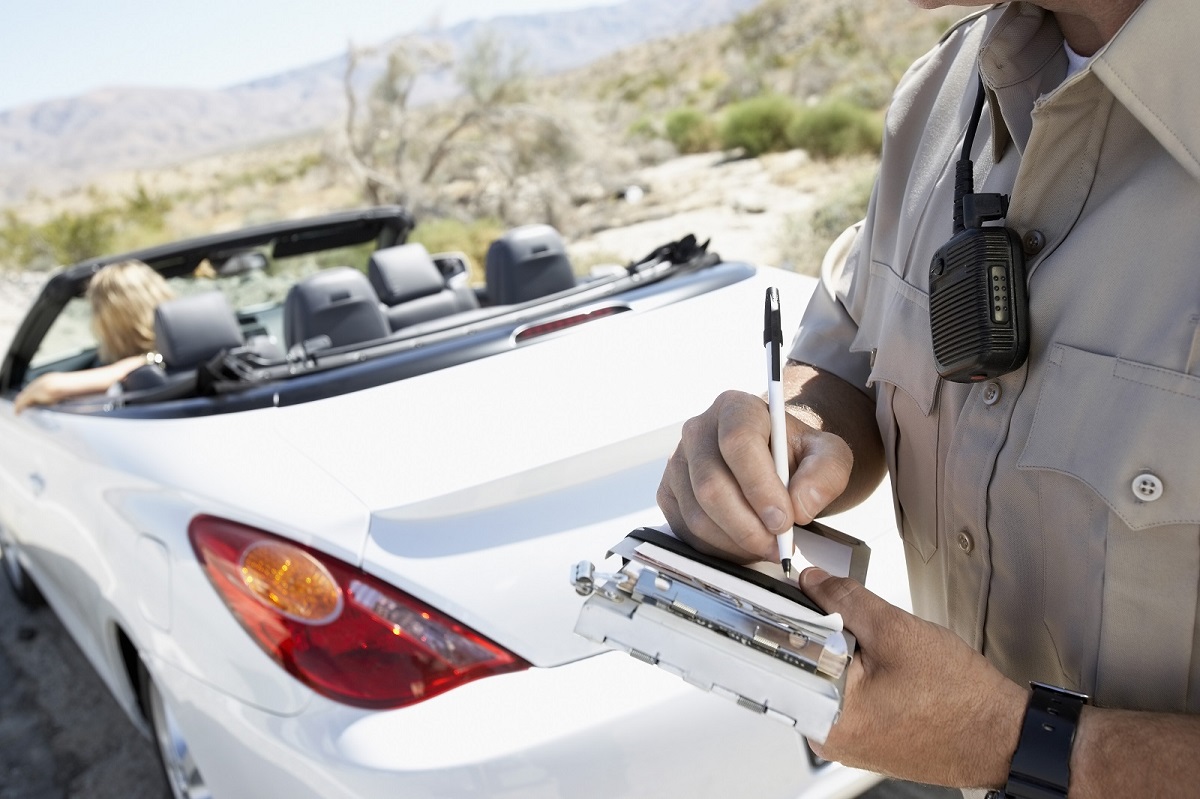
Image Credit: Shutterstock / sirtravelalot
Driving certain cars can make you more noticeable to law enforcement, even if you’re abiding by all the rules. Are you driving one of these “police magnets”? Here are seven cars that seem to attract more police attention than others. Police Magnet: 7 Cars That Guarantee You’ll Get Pulled Over
The Classic Cars That Were Total Clunkers
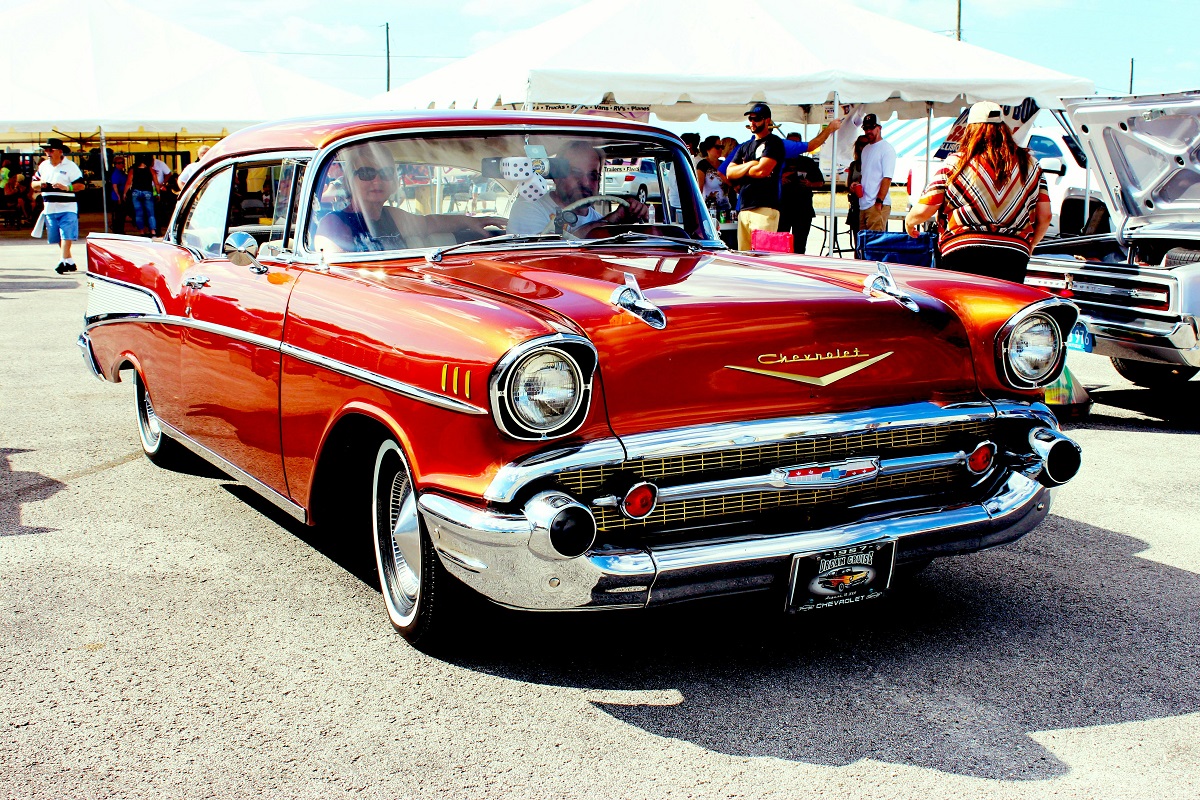
Image Credit: Pexels / Pixabay
Nostalgia has a funny way of making the past seem better than it was, especially when it comes to cars. But here’s the hard truth: some of those “classic” cars your dad raves about were real clunkers. Here’s a closer look at why some of those so-called “classics” weren’t all they were cracked up to be. The Classic Cars That Were Total Clunkers
The Worst U.S. Cars Ever Made: A Retro List
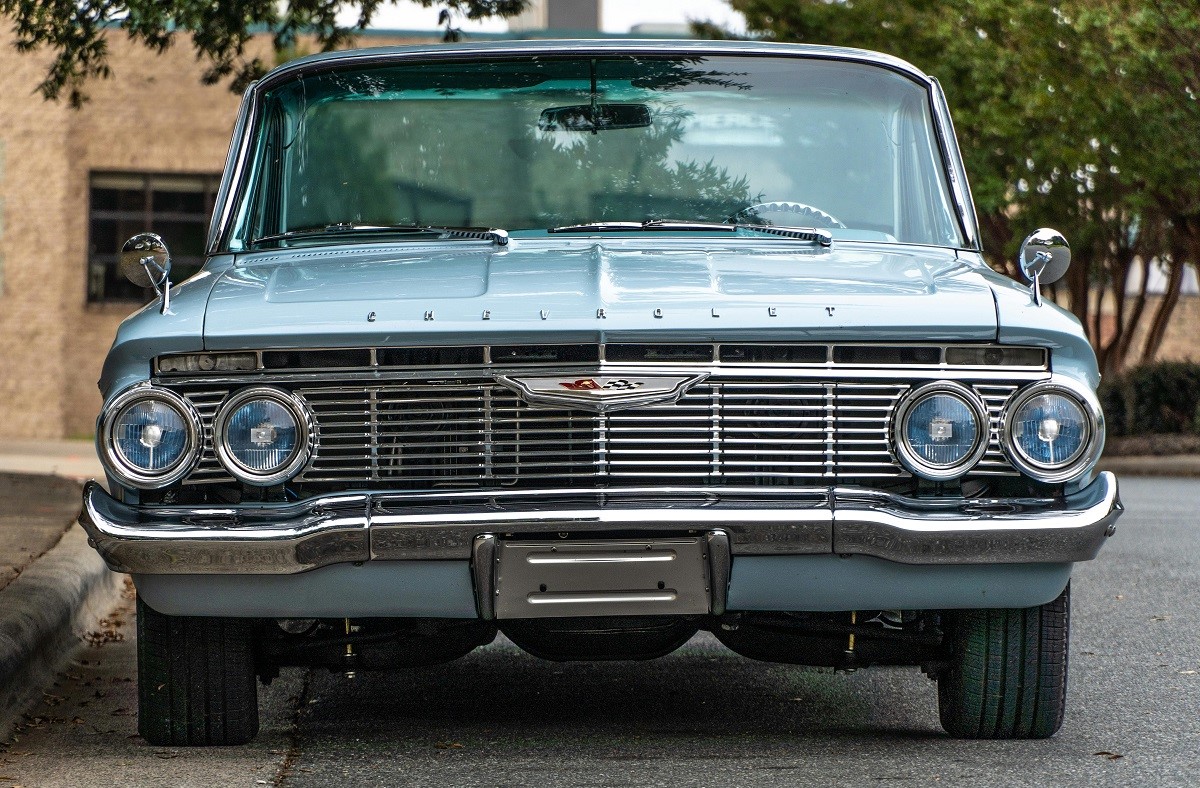
Image Credit: Pexels / Be The Observer
The U.S. auto industry has produced some incredible vehicles, but not every model was a hit. Here’s a look back at 16 of the worst cars ever made in the U.S., each infamous for its own unique flaws. The Worst U.S. Cars Ever Made: A Retro List
Featured Image Credit: Shutterstock / New Africa.
The content of this article is for informational purposes only and does not constitute or replace professional advice.
The images used are for illustrative purposes only and may not represent the actual people or places mentioned in the article.
For transparency, this content was partly developed with AI assistance and carefully curated by an experienced editor to be informative and ensure accuracy.
